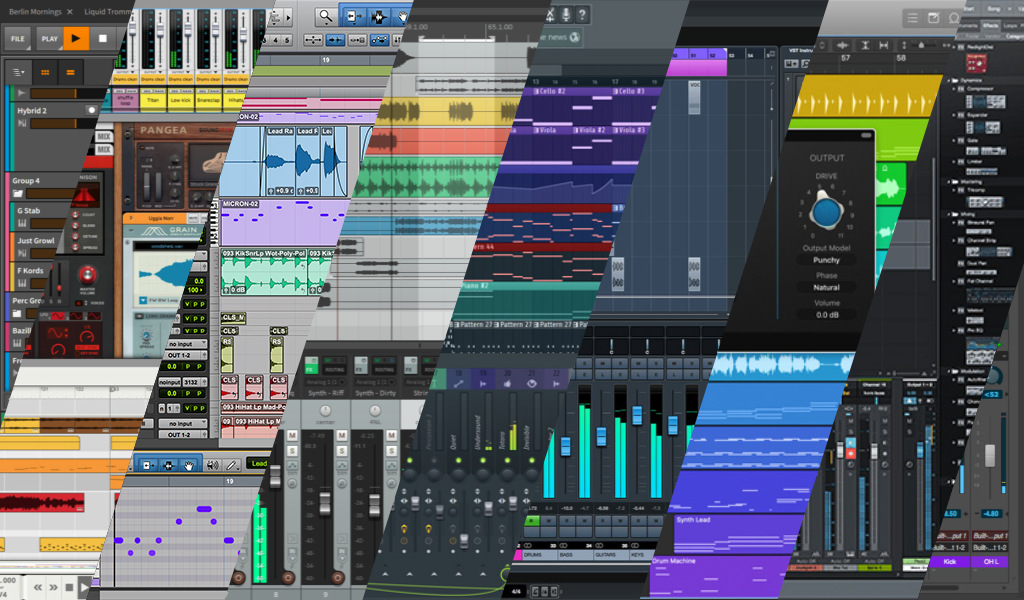Learning to make music is a long process. This will require you to be interested in a number of theories, musicians, bands, composers and so on. You will have to understand what music really is and how to build it to make your music. Once you put your finger on it, you will not be able to go back. A new world will open to you, but in order not to be submerged, you will need good habits.
I went through all these stages and I give you, according to me, the habits that you must have to go far in musical creation.
01 – LEARN
It sounds obvious but many people get started without really knowing where to go and this is the best way to be disappointed and give up. Training yourself is complicated because nothing forces you to do it and the temptation to do it halfway or give up is strong. Instead of going blindly, why not learn from those who know more than you?
You will find on the internet dozens of blog articles, tutorials, online trainings or some books on the subject. Some courses are paid and they are often quality ones. Surf, read, watch, give you the chance to get the knowledges where they are. Take notes of what you are learning and come back from time to time to refresh your memory.
Here is a list of knowledge you should have to evolve:
-
- Composing.
- Solfeggio (at least the name of the notes, triad and enriched chords, scales and modes.).
- Compose a chords progression.
- Compose a melody from the chord progression.
- Composing a bass from the chord progression.
- Sound synthesis (if you use synths).
- Mixing.
- Mastering (at least some notions).
You will still have a lot to learn but you can already go well with this base.
02 – LISTENING ACTIVELY
Active listening means being focused on what you listen to. So by doing nothing next to it. The idea is to understand how other music is built. Try to break down the music that you like. Count the number of instruments that play and what are they. Analyze what you listen to and take notes. This will help you a lot for your own music. Knowing how other music is built, will make you use their construction to do yours or on the contrary to do differently.
03 – PRACTICE
This point is the most important of all. Without practice, no evolution. By practicing, you will make mistakes but these mistakes will make you progress. By practicing, you will apply the teachings you have learned and you will memorize them. By practicing, you will develop your music, step by step. In short, I can not say it enough: practice, practice, practice!
04 – FIND A WAY TO FINISH YOUR TITLES
It sounds weird like that. Why want to make music if not to finish these titles? And yet … Many people who start find good musical ideas but do not know what to do with them (I am, too, gone through there). They find a good chorus but no idea to make a verse or an intro. Many titles never see the daylight because they remain incomplete.
Yet finishing a title requires mostly a method. Many people talk about it on the internet. Listen to their solutions to make it happen and you will make it too. This point deserves an article all by itself.
But I give you a little tip to help you make a verse if you have a chorus that you like:
01 – Compose a chords progression different from your chorus while remaining in the same scale.
02 – Find another melody than your chorus for your verse by following the new chord progression.
03 – If your chorus has a lot of different instruments, remove some of them but keep at least something to play a bass line and a melody.
04 – If your chorus has few instruments (eg guitar + voice, piano + voice, cello + Piano, or whatever …) slow down the rhythm of the instrument that accompanies the melody. This will give a quieter verse than the chorus.
05 – Idem for the battery, slow down the rhythm of the hits for the verse. And if your title is slow, then remove the kick in the verse and use it only in the chorus. This will make a difference in intensity between the two.
06 – If it is rather a verse that you have composed and you need a chorus, apply this method upside down. Add instead of withdrawing and accelerating instead of slowing down.
07 – And if you want to make a bridge, find another chord progression. You can create a new melody for the bridge or use the chorus or verse melody with the new chord progression. By changing the accompaniment of these melodies, it will give a nice sound. In the bridge, let go! Insert more rich chords (7, sus2, sus4, add, …) into your basic chords to create another mood during this part.
08 – Finally, trust yourself. If something sounds wrong or you do not like it, remove it and try something else!
And now, this little method will give you the impulse to moving forward in your title and maybe finish it.
05 – EXPERIMENT / EXIT BEATEN TRACKS
During your practice, test new things. Try what you have not tried yet. Try chord types that are unknown to you. Make a classic song if it’s not your favorite genre. In short, leave the beaten track.
Sometimes it will be great and sometimes it will be bad. In either case, you will have learned something useful. This will forge your composing experience.
06 – RENEWING (TO LAST IN TIME)
One thing is certain, to last in time does not mean to be frozen in the marble; even the rock changes. Slowly, but it changes. Your music must be able to do the same thing: Evolve. See your music as a color gradient. The hue evolves gradually. You will have to challenge yourself and innovate as much as possible. Hence the need to test new methods or new approaches.
07 – BE CRITICAL ON YOUR MUSIC
To love the music that you do is essential. On the other hand, loving them too much and not to see their faults is a problem. Whenever you make a title, you will need to take a step back on it. Ask yourself if it is not too repetitive to the point of being boring, if the samples used are of quality, if it illustrates its theme well and meets its primary purpose (to dance, cry or whatever .. .).
It is not a question of revisiting the choice of the structure, the theme or the instruments chosen but just of their quality, diversity and their impact on your listeners.
By working on your title, you may not see its flaws. Give yourself time to refresh your ear. Leave it aside for a few hours / day and then listen again to identify potential problems. Being critical is also anticipating your potential audience and changing your title accordingly. In short, to be as objective as possible about what you are doing.
In absolute terms, be careful not to over-criticize your titles. This is the best way to stay stuck with endless change by asking yourself fifteen thousand questions and never make it public. We must find a golden mean between being very satisfied and being too critical.
Music is a matter of subjectivity. As long as your title is not attackable on its quality, its appreciation will be a matter of taste on the part of your listeners and you have no power on it.
08 – PUBLISH / HEAR YOUR MUSIC
Finally the last point, make listen to your music. You will be much more critical about their quality if you know that people will listen to it and give you their opinion. Refine your titles and publish them. Hear sincerely what people will have to say to you. Welcome their criticism without hurting you. Remember, even if they are not composers, they are a potential audience with an educated ear who has heard and hears music every day. They will tell you if your music arouses an emotion to them or if they like it.
You will still have to sort through what people are telling you and what you want deep inside you. If you want a music that pleases the greatest number then modify your music accordingly if not keep what you like and make a more personal title. There is no harm in making music specifically for your audience. If you make music, it’s for someone to listen to it, isn’t it? In addition, you can totally inject your own style.
There are some sites where you can publish your titles for free: Soundcloud, Bandcamp, Reverbnation and Youtube (in the form of videos) for the most famous.
I hope this list will be useful in your creations. Leave me a message in the comments if you have any questions or topics that you would like me to make an article about.









Be the first to comment